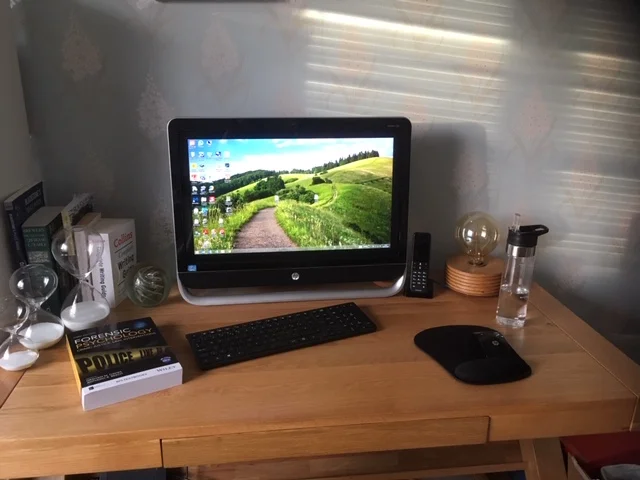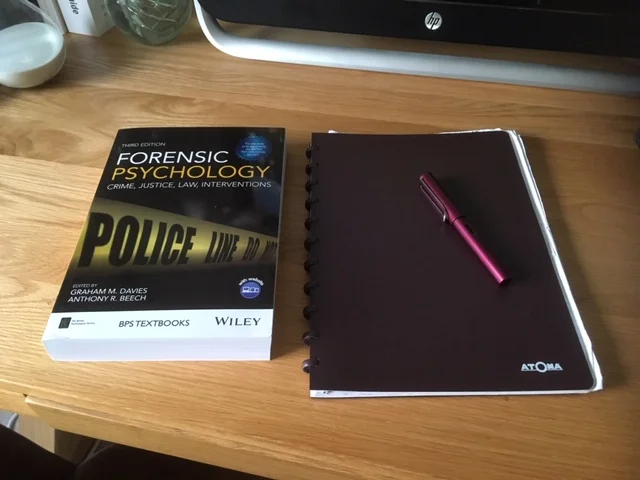When you think about getting a book published, you probably think about agents and publishers and deadlines. But my journey to publication started much earlier on. And for many years, it was solely as a reader. I read every single day and have done so for much of my adult life.
My family were working class and financial hardship was the norm. Books were both my escape and my solace. For the first time in my young life, the world opened up beyond the boundaries of the small Lancashire village in which I spent most of my childhood. I became an avid reader when I was about fourteen. I had a paper round and, at long last, I could buy my own books.
Although I left school at fifteen before my ‘O’ Levels, I went on to have a successful career, acquiring many qualifications along the way and even lecturing at university. And those early years were filled with life experiences that continue to influence my writing.
In 1996 I established my own training consultancy, and it was there that I forged an embryonic writing career. I wrote the majority of materials for the workshops I ran and also sold them to other organisations and trainers. My greatest love was writing role-plays and case studies. They were in themselves one page stories, which would then be acted out by willing participants before my eyes.
It was only when we moved from Cornwall to South Gloucestershire in 2008 that I took the opportunity to study creative writing, initially with Open University, followed a few years later by the MA Creative Writing at Bath Spa University in Corsham. Along with completing NaNoWriMo the previous year, this was another critical turning point in my journey towards getting a book published.
The MA was daunting. I had to learn a whole new vocabulary. Fortunately, the first piece of work I submitted was well-received. That very same piece, after graduation, was included in the Spark’s Anthology for 2016. Getting a book published with your work inside was a wonderful opportunity for myself and my peers. The anthology, a critical element of the MA, was sent out literary agents throughout the UK and is available in digital and paperback formats. Four weeks later there was a formal launch in London, where students could pitch their work to agents.
Back in the January, I had attended a two-day residential Women in Fiction Workshop in Bath. We were offered a fantastic opportunity – there was to be a Dragon’s Den type of competition. Writers could submit five thousand words of their manuscript, then pitch it to an editor from Harper Collins and a literary agent. Much to my huge surprise, I won. The prize – a bottle of champagne. But more importantly, something of greater value – a critique of the work submitted. The editor very kindly offered to read the full manuscript, but at that time I was only about thirty thousand words in. It was without doubt a confidence builder, so much so that I pitched to an agent at the London Book Fair. She too was interested in reading more.
The Spark’s Anthology was launched in digital and paperback in early April. The first agent emailed me three hours later. During the following weeks I was contacted by a further nine agents, including representatives from some of the leading agencies in the UK. I was overwhelmed, to say the least. I sent more additional chapters to the first five agents who contacted me. Of those, three offered me representation. One declined and another said they’d wait until the full manuscript was ready. The rest I sent a thank you email to because, by the end of April, I had agreed to sign with Jenny Savill of Andrew Nurnburg & Associates.
In May 2016, Jenny and I agreed a deadline of the 31st August for the first draft. I would send her a few chapters every week or so. Importantly, she advised me to just write and not worry about the word count. The plot truly twisted and turned, it seemed to have a life of its own. At times I struggled. I wrote three potential endings, all of which ended up in the archive file. Four months later, the first draft was completed, all one hundred and sixty-five thousand words of it. It was then that the feedback process began in earnest. The advice and guidance from Jenny was invaluable. The following December, I undertook a massive edit, the result of which reduced the word count to 95k. Slowly it was shaping up. The final draft, finished early July 2017, was submitted to editors and publishers. This is when I knew I was finally close to getting a book published. Jenny passed on to me a number of very kind rejections who praised the writing and creativity. No doubt there were others, not so kind, but thankfully she didn’t send them to me.
To keep myself busy and sane, I started on another manuscript and wrote a summary for another idea (still on file). I carried on studying; I attended residential workshops at Moniack Mhor and Arvon. More recently, I undertook an online course with Unthank Creative Writing School. For me, the structure of learning, writing and critiquing is essential. All three programmes were highly enjoyable and I met lots of interesting people, many of whom I’m still in contact with.
I was delighted when Betsy Reavley of Bloodhound Books offered me a contract. I signed with them in June 2018 with a target date for publication of September 2018. Life since then has been pretty hectic. I asked Betsy if it would be possible for me to go through the manuscript again; there were amendments that I wanted to make. Much to my relief, she agreed. I believe the book is better for it. I found both the editing and proofreading elements of the publishing process challenging yet invaluable. Getting a book published is not always plain sailing.
She Lies Hidden by C M Stephenson
She Lies Hidden was released on Kindle on 24 September. Whilst I was filled with trepidation, I was also excited at the thought of people reading it. For me, that has always been the dream. To add icing onto the cake, I signed an audiobook contract with Bolinda Publishing, am Australian publishing house, in December 2018. Available in the UK, North America and throughout the southern hemisphere, it is due for release via Audible on the 28th March 2019.
My debut novel, She Lies Hidden, was a UK Kindle Best Sellers Top 100.
How far would you go to find your missing sister?
When DI Thomasine Albright is informed that the remains of her fifteen-year-old sister, Karen, have been found, she promises her mother that she will be the one to find the person responsible. Thomasine is willing to sacrifice everything to find Karen’s killer. And when she does – he’ll pay
Grab your Kindle or paperback copy from Amazon. The audio-book is also available from Audible.


